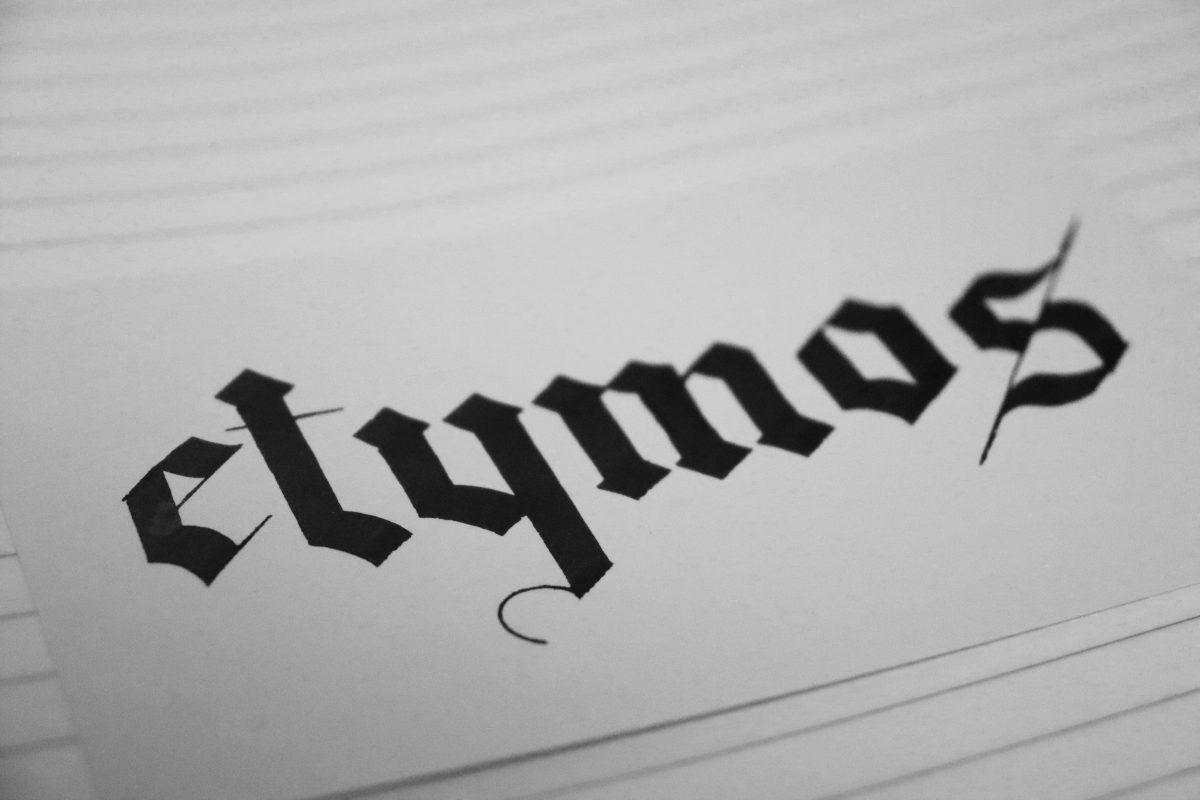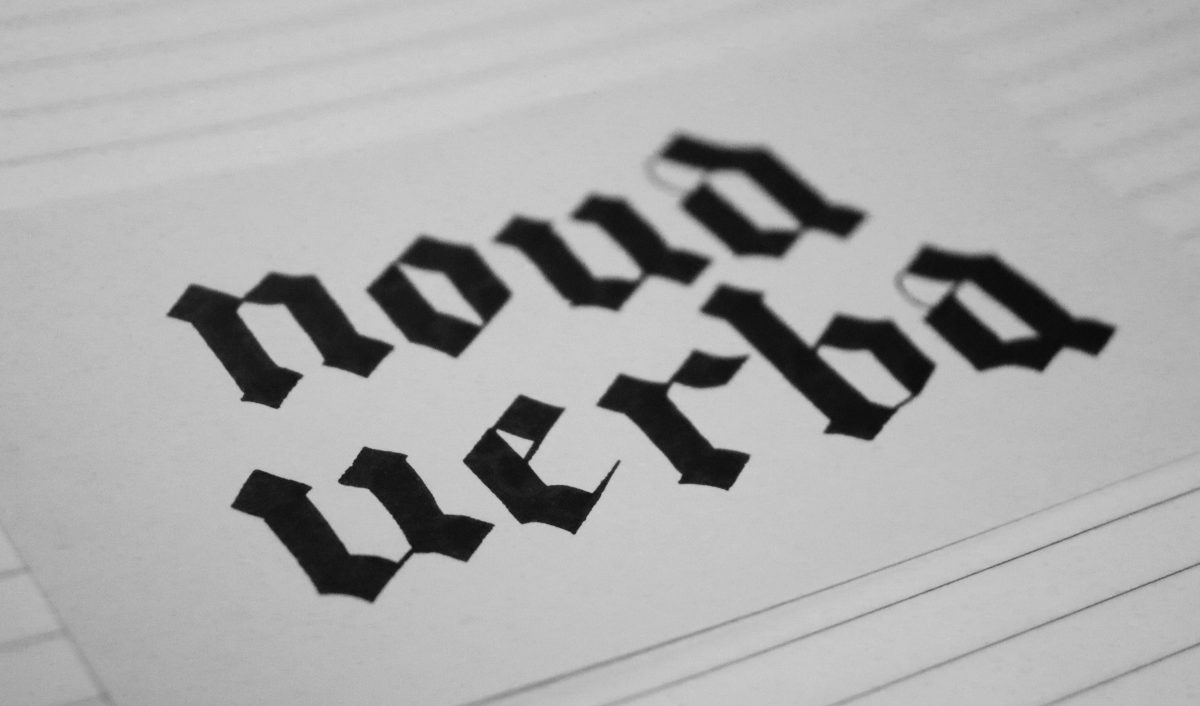When I first found out about B.C.E. / C.E. – standing for ‘Before the Common Era’ and ‘Common Era’ – which I think was towards the end of primary school or sometime during secondary school, I immediately found them compelling. I’d say for most of the time between 2006 and 2023, I used B.C.E. / C.E. exclusively instead of B.C. / A.D.. But now I’m going back.
You have to remember that Christianity in England was different in the late 90s and early 2000s. Nowadays, Christianity is absent from most parts of English life (if you’re an atheist like me) – a result, in part, of New Atheism (of which I was a small part). But 20-25 years ago it was much more present. More people were Christian, and they were more vocal about it – more willing to mention it in casual conversation; more willing to make their allegiance to it known.
I was an atheist from a very early age – possibly six, seven, eight years old. It was very obvious to me, early on, that there was no particular reason to believe in the existence of the Christian god over, say, the Greek gods. I recognised it straight away as mythology.
I also have a rebellious streak, and a great disdain for condescension and that kind of ‘kid-talk’ voice that bad primary school teachers do. The Christians I encountered in the late 90s and early 2000s were extremely condescending, and also quite bossy and expectant. So I found Christianity to not only be incorrect, but also detestable.
This is why I liked B.C.E. / C.E.. As an atheist, it seemed nonsensical to write an abbreviation meaning ‘Before Christ’ when I don’t believe that Jesus of Nazareth was Christ (i.e., the son of a god), or to write an abbreviation of ‘Anno Domini’, meaning ‘in the year of our Lord’, when I don’t believe that Jesus was or is Lord. I also disliked that our year-numbering system was connected to – what I saw as – a very annoying religion filled with quite annoying people.
B.C.E. / C.E., on the other hand, seemed perfectly clear and neutral – abstract even. ‘The Common Era’ – a term that seemed to make sense given that people right across the world used this numbering system – it really was the common era. I was also drawn to the symmetry of the abbreviations – both containing ‘C.E.’. It seems elegant. That’s the physicist / programmer in me – we are drawn to symmetry and the simplification it brings.
So for many years I consistently used B.C.E. / C.E. every time I needed to write it. But now I’m changing back.
There are several reasons for this. Primary among them is that I abhor the obscuration of history and the loss of tradition. I have always abhorred these things – from a very young age. This isn’t a new trait. (It is something that has long set me apart from a lot of the people on the political left, who generally see no value in tradition – be it national tradition or even local or personal tradition.) And the reality is, the B.C.E. / C.E. system uses the same numbers as the B.C. / A.D. system – numbers which, for centuries, were used to denote how many years had passed since the birth of Jesus of Nazareth. (Whether or not they are accurate is a different matter – that is the meaning they had for centuries.) If any young person, new to all of this, were to ask ‘Why are the year numbers the numbers that they are? Why is the current year 2024 and not 3748?’, you would have to explain that they are based on the number of years thought to have passed since the birth of Jesus of Nazareth. So changing the words doesn’t actually remove the meaning at all – the meaning is still there. All changing the words does is try to obscure the origin of the system – it just tries to obscure a historical fact. And I don’t like that.
Also, as time has gone on, I have gotten a greater and greater adoration for old things. I used to hate old buildings – including churches. They always stank of old building – and it’s quite an oppressive smell. This was true of churches, but also think of old pavilions on village cricket greens or football fields, or municipal libraries built in the 70s and fitted with scratchy, grey carpet tiles. Somehow they all smelled the same – of old. And they were cold – both in temperature and in lighting. I was thoroughly a modernist in this regard – I like super-modern buildings made out of shiny steel and huge glass windows.
But this was before I had really encountered the horrors of brutalism. Brutalism will make you rethink your entire attitude to modern buildings. And really, even the things that aren’t brutalist that have been built over the last 50-70 years or so are also, often, just horrid. They are ugly, stale, corporate, and bureaucratic.
Nowadays, when I go to a new town or city, the place I want to visit is the cathedral or the biggest church. They are by far the nicest-looking buildings, and the ones with the most history. I love wandering through the parts of them where all of the in-church graves and memorials are, and reading things that were carved into the wall hundreds of years ago. (It’s why Westminster Abbey is so much fun – I’d recommend to everyone to go there.)
I adore the things that have lasted for centuries – buildings, statues, artwork, and also conventions, such as B.C. / A.D.. These things connect you to the past – a past, and a society, in which all of your ancestors lived. By writing B.C. / A.D., you are participating in a system that thousands upon thousands of people have used before you. By using it, you are joining them in upholding an ancient tradition. You are passing on what was passed down to you.
And in the end, the literal meaning doesn’t really matter to me. Simply writing B.C. / A.D. – or even the full wording – has no chance of changing my mind about the existence of a supernatural being. Atheism (for me, at least) is not so flimsy.
(As an aside, I did previously wonder whether there was a technical reason to switch to B.C.E. / C.E. – that being the ‘blip’ caused by the switch between Old Style and New Style dates resulting from the change from the Julian Calendar to the Gregorian Calendar. The B.C. / A.D. system, being defined from a time 2024 years ago, could be used to refer to either an Old Style or a New Style date. The B.C.E. / C.E. system – I thought – was defined from now backwards, and thus could only ever refer to a New Style date. This would have made the Common Era system more mathematically rigorous. However, I later found that this wasn’t true – B.C.E. / C.E. is just a wholesale swap-out for B.C. / A.D., with no mathematical fix implied. What rubbish. If you’re going to make the change, at least fix the mathematics of it.)
B.C.E. / C.E. are cold – devoid of all meaning and richness. They are dreary – the kind of dreariness exhibited by brown glass windows, balding civil servants, and – worst of all places – business parks (a kind of dreariness that women in HR dream of inflicting upon their prisoner-employees).
So I’m going back to B.C. / A.D.. In fact I might quite often write out the full thing: before Christ and anno Domini. In fact in fact, I might go as far as to write out their full Latin and longer variants: ante Christum natum and anno Domini nostri Jesu Christi. After all, I do enjoy writing conventions that seem unusually lengthy and detailed.


